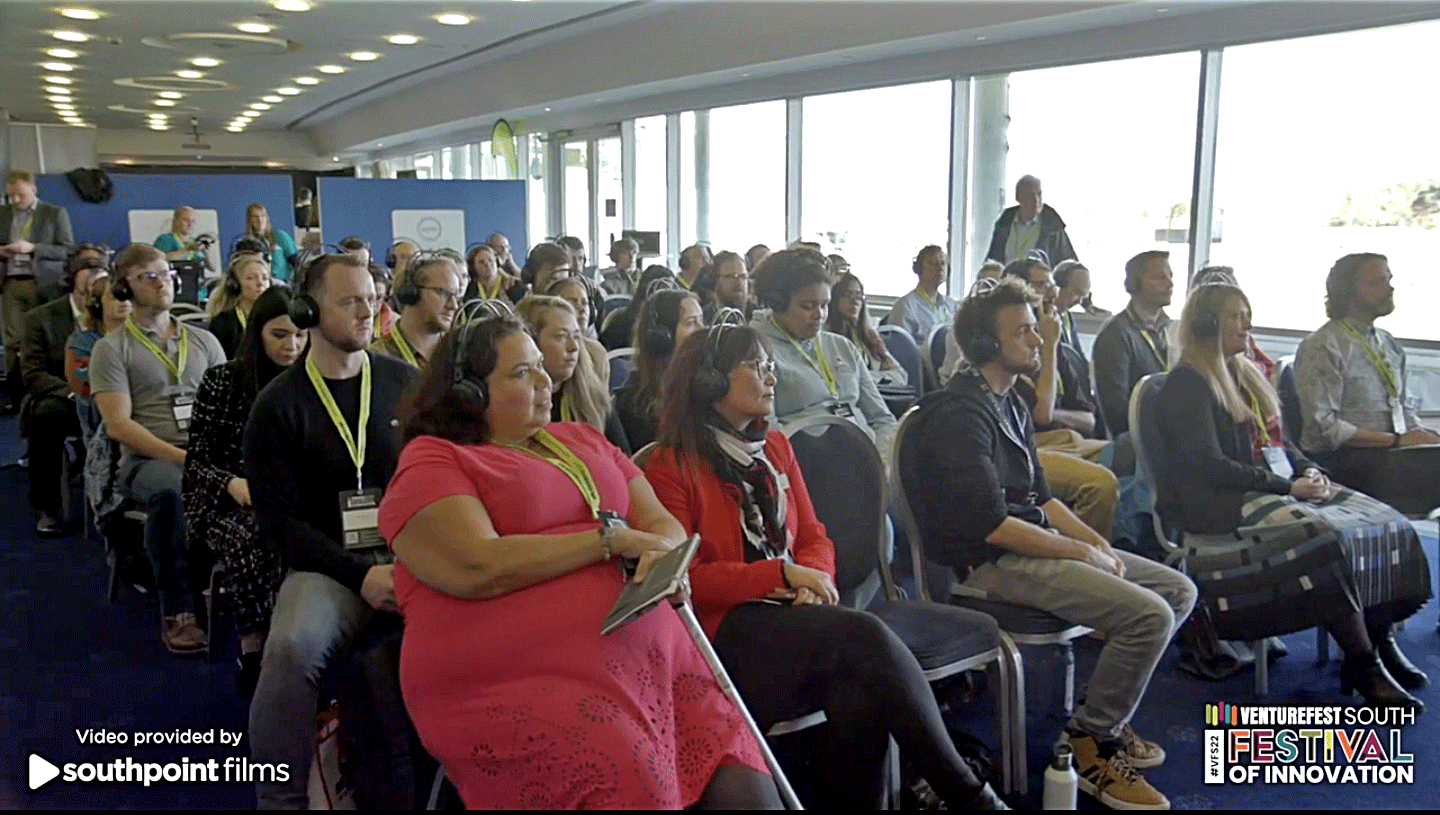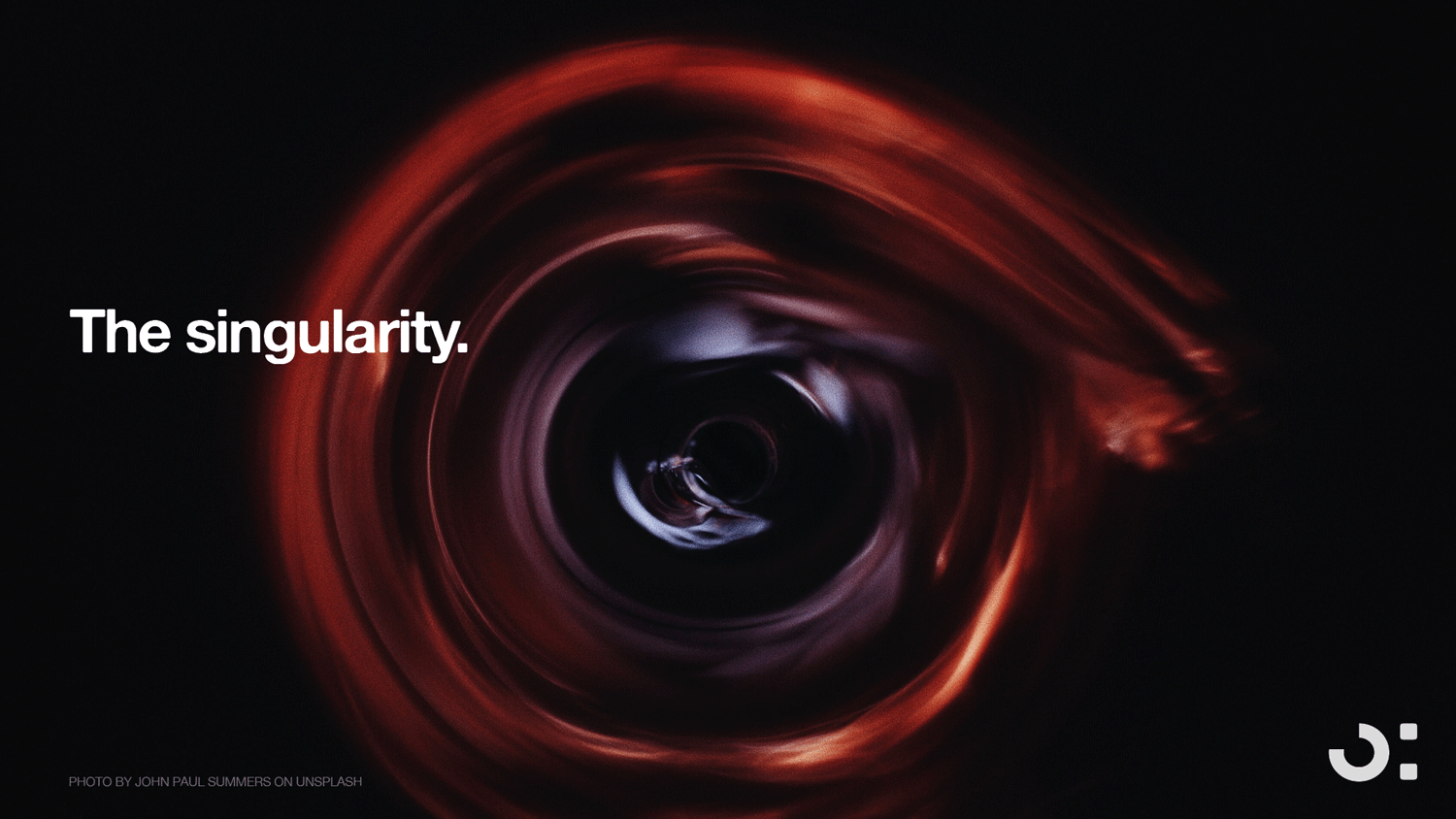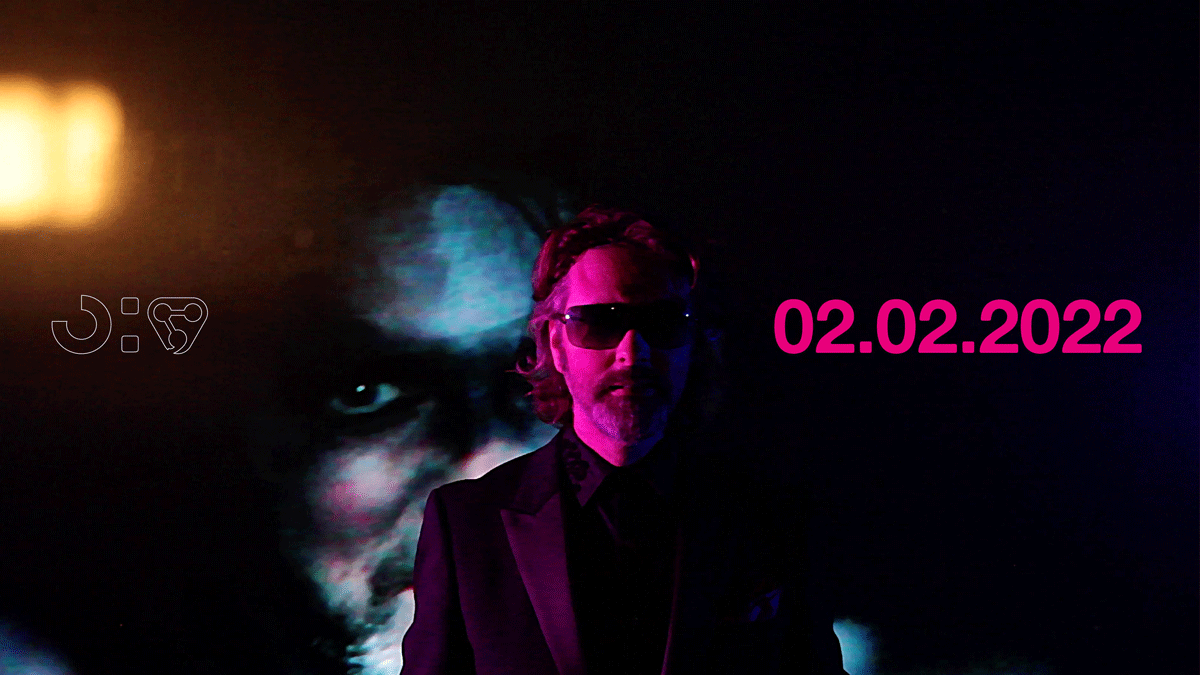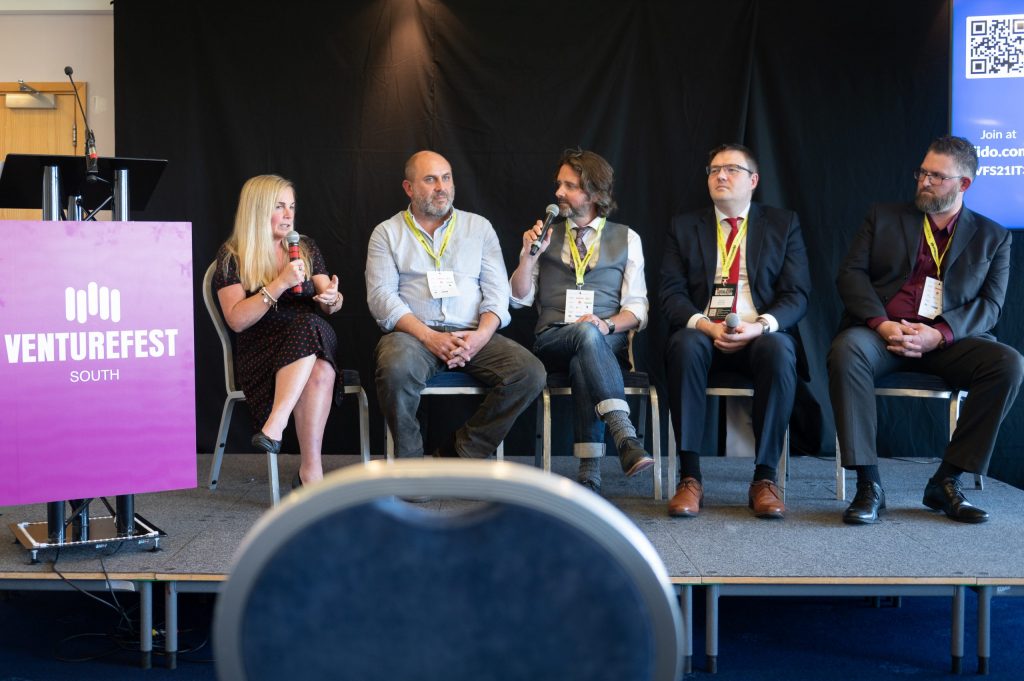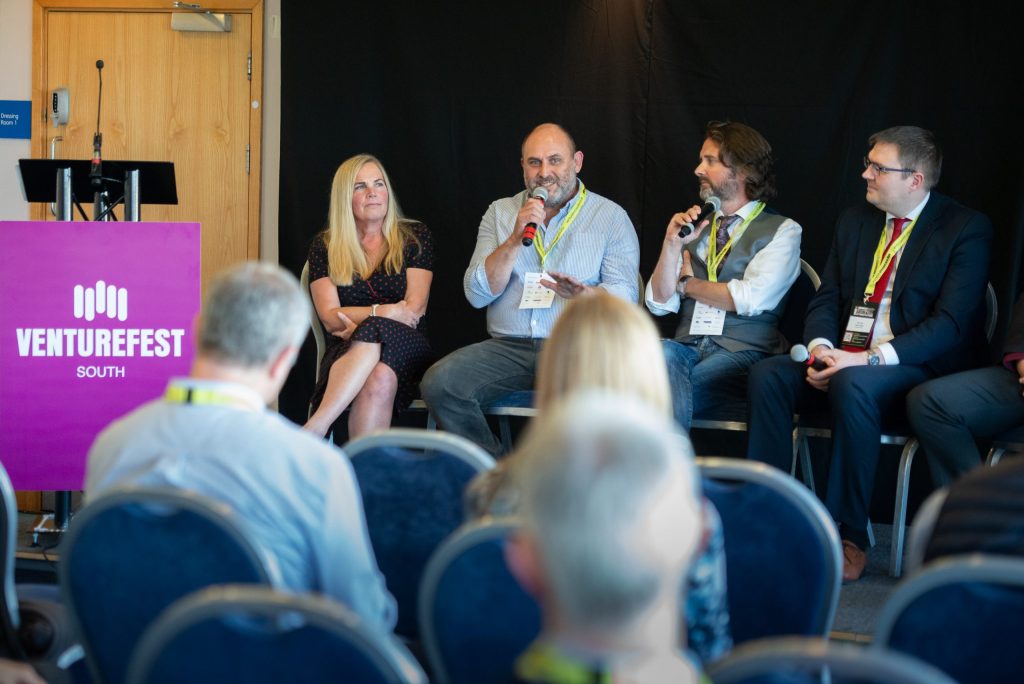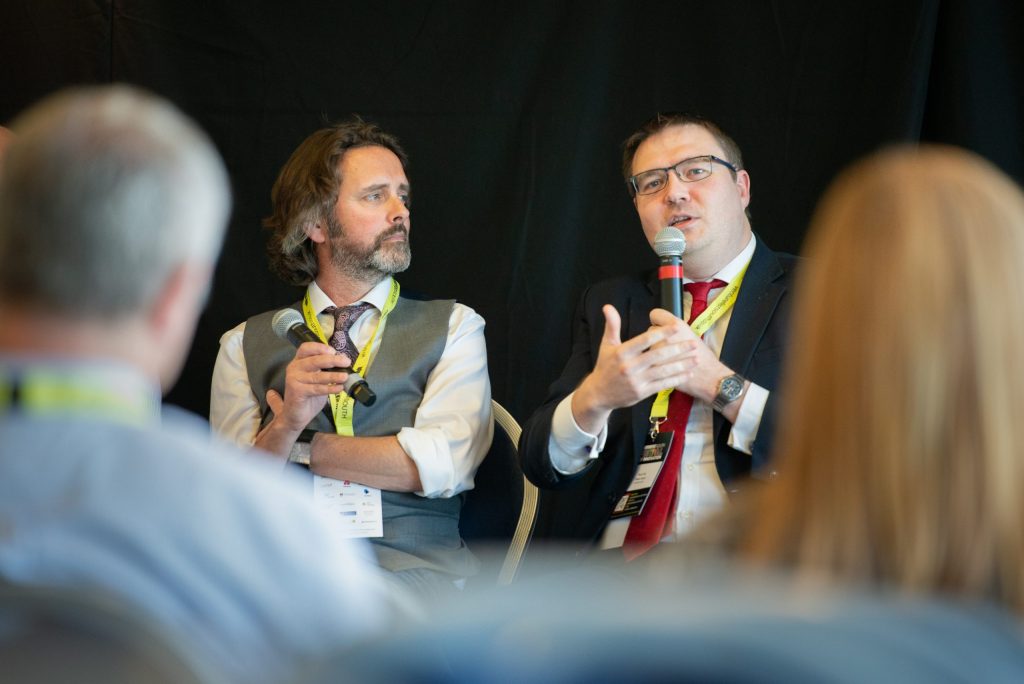A simple format change to an experience can transform it, but to work into opportunity it’s the stories we’re putting into our ears every day that need a switch, says Timo.
I hadn’t thought about live silent podcasting before.
As I and my first panel of guests stepped up to the stage, all of us holding our indiscrete headphones, preparing to place them over our heads, we looked at each other like baby hedgehogs facing an A-road.
“What, we really do put these on while we’re speaking? ..Up there?”
They looked at me like daddy hedgehog had lost his mind. Shouting over the traffic. We really are doing this, then in other words. I said yeah. We put on our indiscrete headphones and stepped on stage.
I looked back at a sea of audience faces all wearing their own headphones and awaiting the experience.
And then we just enjoyed a great set of introductions and a good chat. Like it was normal. And like we could actually hear what was happening.
VentureFest South grows in my affection a little bit every year. It’s a coming together of business folk from various sectors in South Central, helping us find can-do ideas and support to do them, and also define a region that doesn’t officially exist, caught between the south-east and the south-west.
I have now hosted a number of stages, talks and discussions around principles of innovation, always a privileged invitation to join in with such can-do community. But, y’know – trade expo halls are noisy. So in the past, competing with stand chatter, our modest PA couldn’t fairly drown out all other business by being loud enough to comfortably sit and listen to live, unless you were streaming it from home.
This is where events legend Shirley Wynne-Jones quietly opened the door to a new experience for me – “We’re going to try doing it as a silent disco” she said with no drama.
“Kay…” I replied quizzically. Cut to me and my momentary image of snuffling hedgerow babas by the busy roadside.
I hosted three panels during the day, and the experience of silent disco-ing the discussions produced an odd effect. I found myself slowing my heart rate down to a smooth jazz radio guy’s pace; being intimately in everyone’s ears while on a stage was not a normal day up front at an event. But it felt, in the end, like a live podcast experience – absorbing and intimate.
And intriguingly, where audiences in the space are normally a bit patchy, this year every seat and pair of headphones was taken.
Which was fitting. Because It meant more of us could tune into the implication and tone and essential message of Venturefest South – tune out the noise of crisis and hear the possibilities. There is support, funding, networks and opportunity to make new things happen if you want to. And if you want to, you won’t be completely alone in the endeavour.
Driven with grounded passion and a notable degree of showbiz by ED GOULD from agency Carswell Gould, it is a chance for creatives like him and I to help businesses not just tell their stories but write new ones. Yes there were wooden bikes, jet packs, battery packs, VR startups, scary robot vehicles from the DSTL and all manner of businesses sharing shiny capabilities. But my interest is the human energy that creates all this – so, yes, I did get the finance panel talking about art and storytelling.
And I think, therefore, it’s interesting in our time of crisis and deepening economic chills that all of the five main pitches for a financial support prize at this year’s festival were concerned with enabling healthier ways of doing business.
Taking a chance on an idea is no smooth venture. But the story you surround yourself with can change everything for you.
Time we all cancelled a lot of the noise and tuned into the possibilities.
—
Catch the news story about this year’s VentureFest South right here >
